This is the one thing PS5 absolutely did better than the Xbox Series X and S
Console wars? How about storage wars?
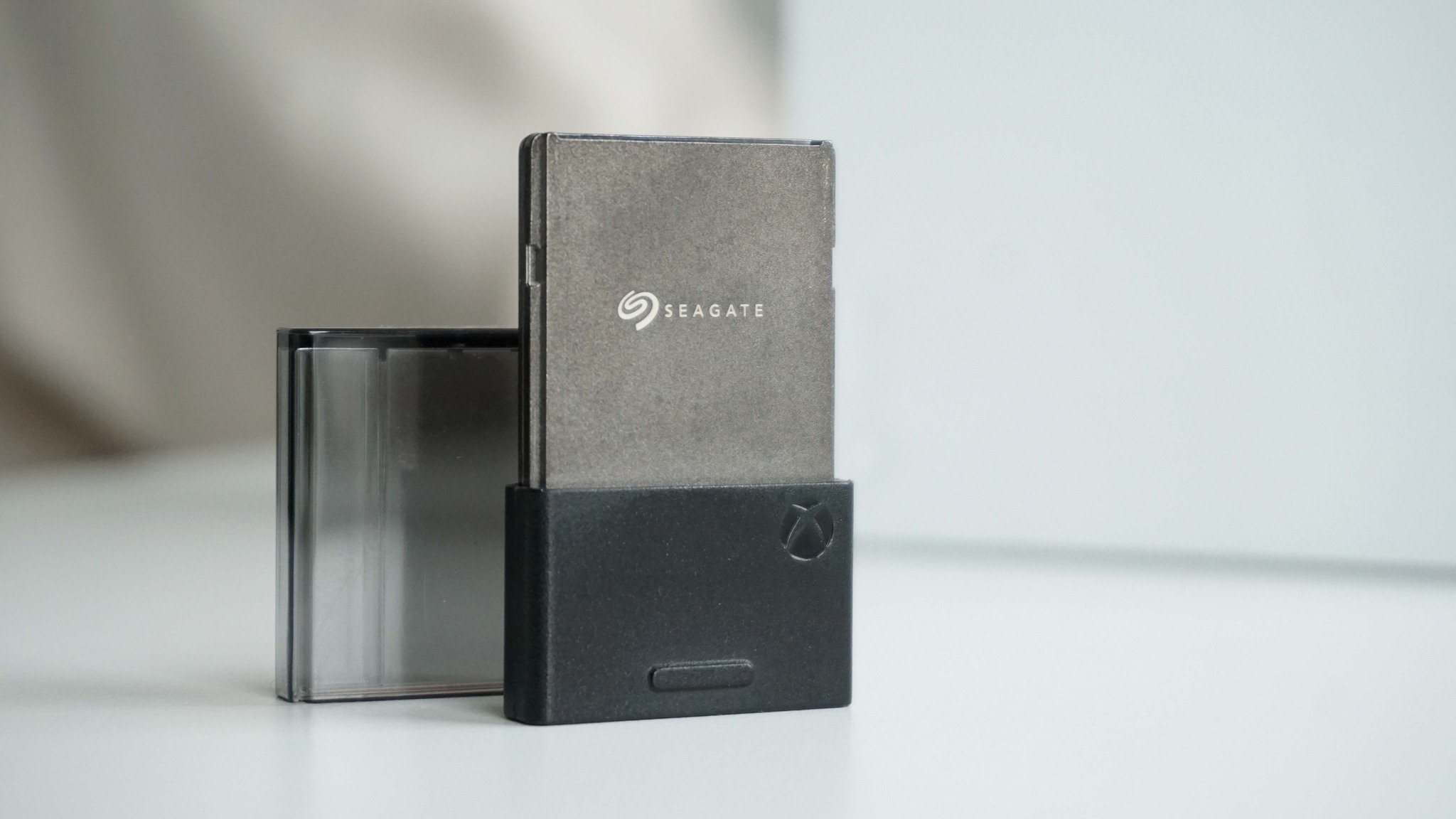
Console war never changes.
While fans of both "sides" fight over subjective things like games and whether or not the Activision-Blizzard deal is a good thing or not, there is at least one thing (among others, to be fair) that the PlayStation 5 absolutely does better than the Xbox Series X|S.
Launched back in 2020, the so-called ninth generation of video game consoles pitched Sony's PlayStation 5 head-to-head with Microsoft's two-pronged Xbox Series X and Xbox Series S approach. While the Xbox Series X supposedly had an edge in power on paper, in practice, both output similar visuals at 4K, often with 60 FPS or even 120 FPS in some cases. The Xbox Series S offers a more affordable 1080p to 1440p resolution experience while incorporating many modern architectural features.
At launch, the PS5 lacked an expandable storage solution and was heavily criticized for it. Given that many games are now frequently hitting anywhere between 50 and 100 GB in size, this presented Xbox with something of an advantage. Microsoft launched the Xbox Series X|S with proprietary SSD expansion cards built by Seagate that seamlessly expand your console's storage footprint. It wouldn't be until a few months later that Sony caught up, offering players the ability to incorporate practically any high-speed NVME M.2 SSD into the PS5 for storing and running games.
It turns out Sony's solution was absolutely and unequivocally the better choice, but what's the full story?
SSD prices are crashing, for everyone except Xbox fans
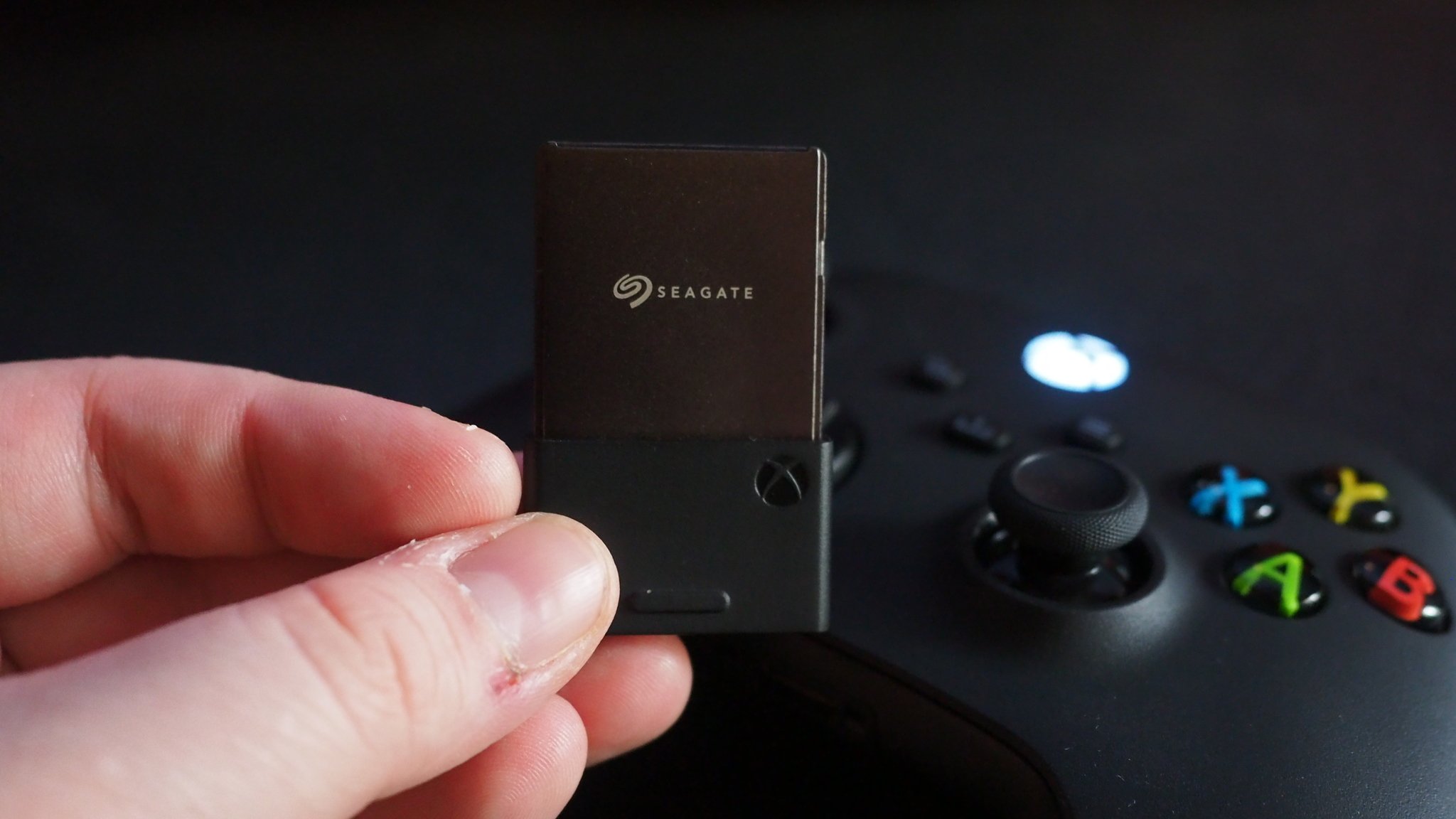
We cover a lot of PC components on Windows Central. Our team runs dedicated articles for best SSDs and the like, and while updating our coverage for Black Friday last year, it really began to dawn on me just how much of a delta there was in price.
There were some truly crazy deals during Black Friday for PS5-compatible NVME M.2 drives, while the equivalent Seagate expansion cards for Xbox Series X|S were lucky to grab $50 off here and there in the US. Although a couple of great deals did pop up now and then for the card, for most of the year, the prices are just insane.
Get the Windows Central Newsletter
All the latest news, reviews, and guides for Windows and Xbox diehards.
EDIT: Case in point, WD slashed 50% off this monster NVME M.2 SSD, making it cheaper to get 2TB for PS5 than it is to get 1TB for Xbox Series X|S.
Currently, the cheapest option for 1TB of Xbox Series X|S integrated storage costs more than double over a compatible 1TB PS5 NVME. And that is while factoring in a deal Amazon currently has knocked $20 off the Xbox expansion price.
Indeed, as the global chip shortages receded and the pandemic demand waned, SSD prices have dropped more than 30%, following accurate predictions from analysts back in 2022. The same analysts predict that SSD prices could drop anywhere up to 50% in price by the end of the summer of 2023. This chart from Tom's Guide below gives you a glimpse at just how hard prices are falling right now, and it's for basically all storage solutions except Microsoft's.
| Drive | Price | Jan Price | Price Cut |
|---|---|---|---|
| WD Black SN770 | $59.99 | $89.99 | 33.34% |
| Crucial P3 Plus | $54.99 | $79.99 | 31.25% |
| Intel 670p | $49.99 | $69.99 | 28.58% |
| Samsung 870 Evo | $64.98 | $89.99 | 27.79% |
| Crucial MX500 | $51.99 | $69.99 | 25.72% |
| Solidigm P41 Plus | $52.99 | $69.99 | 24.29% |
| WD Blue SN570 | $52.99 | $69.99 | 24.29% |
| Samsung 980 Pro | $99.99 | $129.99 | 23.08% |
| Silicon Power UD90 | $57.99 | $74.99 | 22.67% |
| Samsung 980 | $69.98 | $89.99 | 22.24% |
| Crucial P3 | $49.99 | $63.99 | 21.88% |
| SK hynix Gold P31 | $107.99 | $136.99 | 21.17% |
| Samsug 970 Evo Plus | $79.98 | $99.99 | 20.01% |
| Kingston KC3000 | $86.75 | $106.99 | 18.92% |
| Kingston Fury Renegade | $91.76 | $111.99 | 18.06% |
| Sabrent Rocket 4 Plus | $99.99 | $119.99 | 16.67% |
| Crucial P5 Plus | $89.99 | $99.99 | 10.00% |
| Sabrent Rocket Q | $79.99 | $79.99 | 0.00% |
| Samsung 990 Pro | $169.99 | $169.99 | 0.00% |
| SK hynix Platinum P41 | $149.99 | $149.99 | 0.00% |
| WD Black SN850X | $99.99 | $99.99 | 0.00% |
Not all of the above drives meet PS5's minimum requirements, but many do. The fact I can hop onto Amazon or Walmart and find PS5 1TB SSDs for around $90, compared to the Xbox Series X|S's $180 to $200, is difficult to explain to people asking. And sure, cheaper off-brand parts are likely to be more prone to failures, but even premium brands like Samsung et al. are offering prices far below what Microsoft wants for an equivalent amount of storage.
The price on these cards just hasn't shifted in two years of availability, owing to the expensive CFExpress interfacing standard Microsoft opted for. Why they chose this method boils down to a bet on how markets would move with regard to storage, and it was ultimately a bet that didn't pan out the way Microsoft would have hoped.
Why are we stuck with this single option?
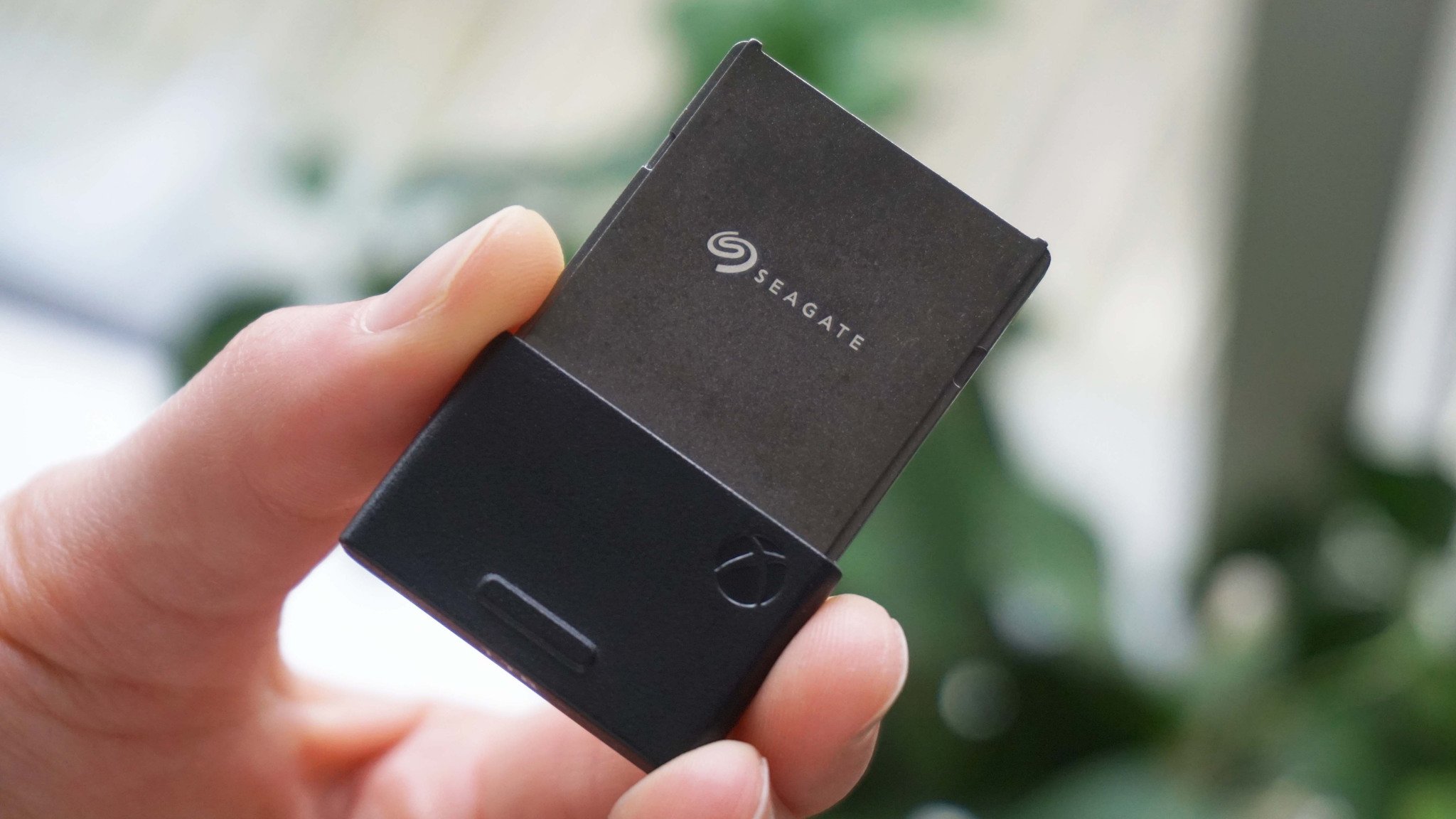
CFExpress is a proprietary storage interface solution initially developed by SanDisk. "CF" stands for CompactFlash, and typically these devices are used in high-end cameras. The benefits for photography are pretty clear in that the cards support high read-write speeds for high-resolution burst photography and recording while also being less prone to corruption and failure when compared to some other storage types.
The Xbox Series X|S range is the only time CFExpress has been used in a gaming context. Microsoft's solution is also semi-proprietary, meaning that you won't be able to take your Xbox card and repurpose it as a video camera storage option either.
Speaking with sources familiar with the development of the Xbox Series X|S storage solution, Microsoft chose CFExpress primarily for simplicity. It is great that you can insert and remove the Xbox storage solution without reaching for a screwdriver, but I presume most people would prefer a card that was anywhere up to a hundred dollars cheaper for the sake of a small convenience.
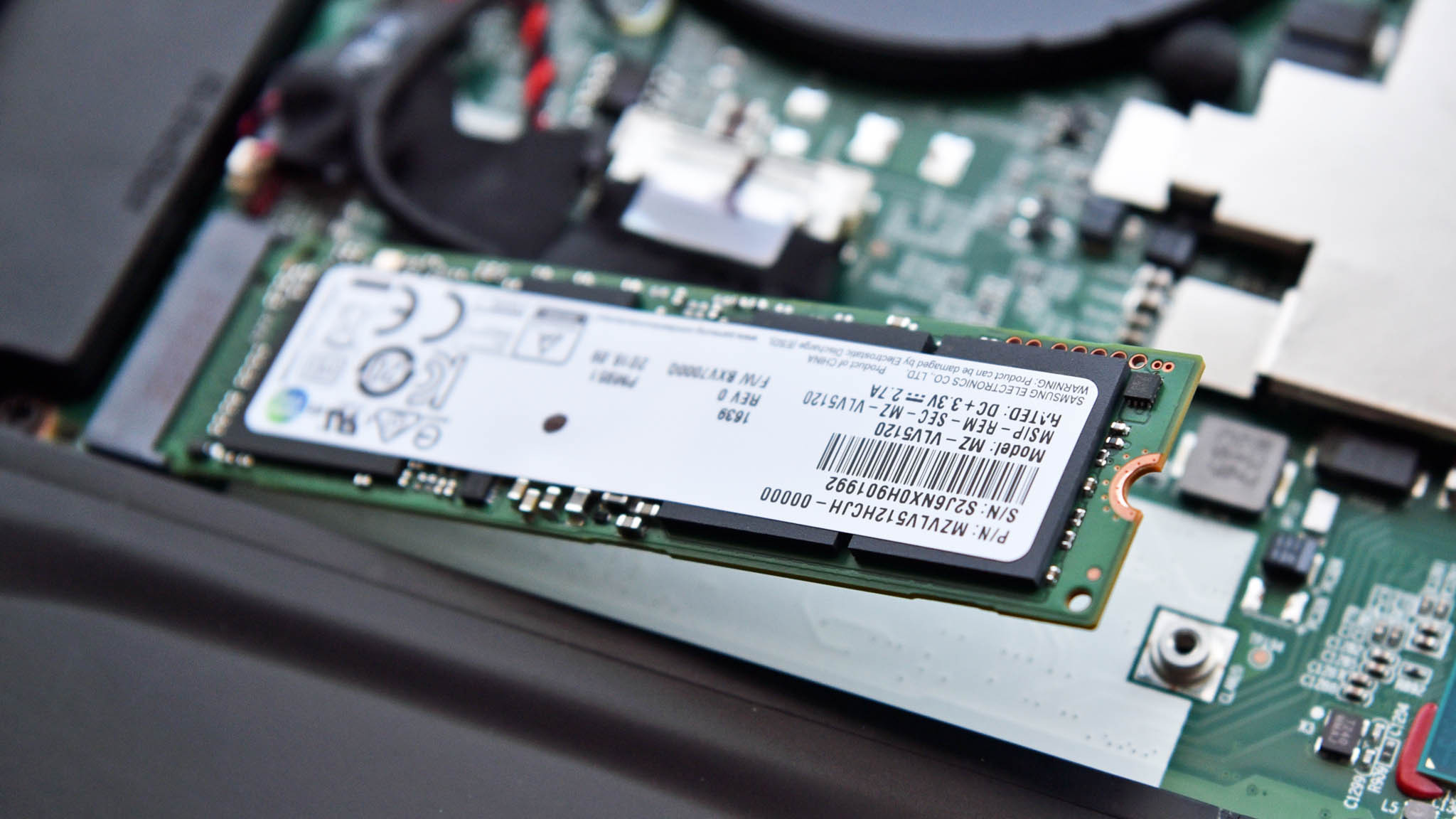
Microsoft heavily promoted its Xbox's Velocity Architecture and Direct Storage solutions when the console launched. The architecture is supposed to bring about improvements and benefits for Xbox and PC games with regard to storage optimization, particularly for loading times, data streaming, and so on. Speaking to those familiar with the console's design, Microsoft wanted to ensure a standardized SSD speed for its game development environment. PC developers have to account for a plurality of read/write speeds in the market already, though. And, indeed, nobody on Earth uses a CFExpress card for storing their PC games.
Update (March 11, 2023): Previously I suggested that only Forspoken was known to be using Direct Storage on PC, but according to sources, there are more games benefitting from the APIs on Xbox.
When Microsoft initially developed the hardware, highspeed NVME M.2 drives were comparable in price to CFExpress. However, as the pandemic has waned and global demand for PC components has crashed, the market price for standard M.2 NVME SSDs has crashed with it. Since CFExpress cards remain a niche interface, prices have, and most likely will, remain high. Engineers I spoke to suggested to me that Compact Flash also has some benefits with regard to defragmentation and sequential read/write operations. The frequency of data read/writes that Xbox consoles perform created a preference for this storage solution, which should be less susceptible to degradation over time — and this is something Microsoft was eager to offset. But, again, this is presuming that the next Xbox consoles don't just ditch this storage card system altogether when the next-gen consoles roll around. What's the point of that longevity if we're going to just move to a standard M.2 drive next-gen anyway?
Perhaps over time, Xbox Velocity Architecture will necessitate these specific storage cards and change the game for development later in the generation, but it's of little comfort to those who, right now, cannot justify the cost.
Is the situation likely to change?
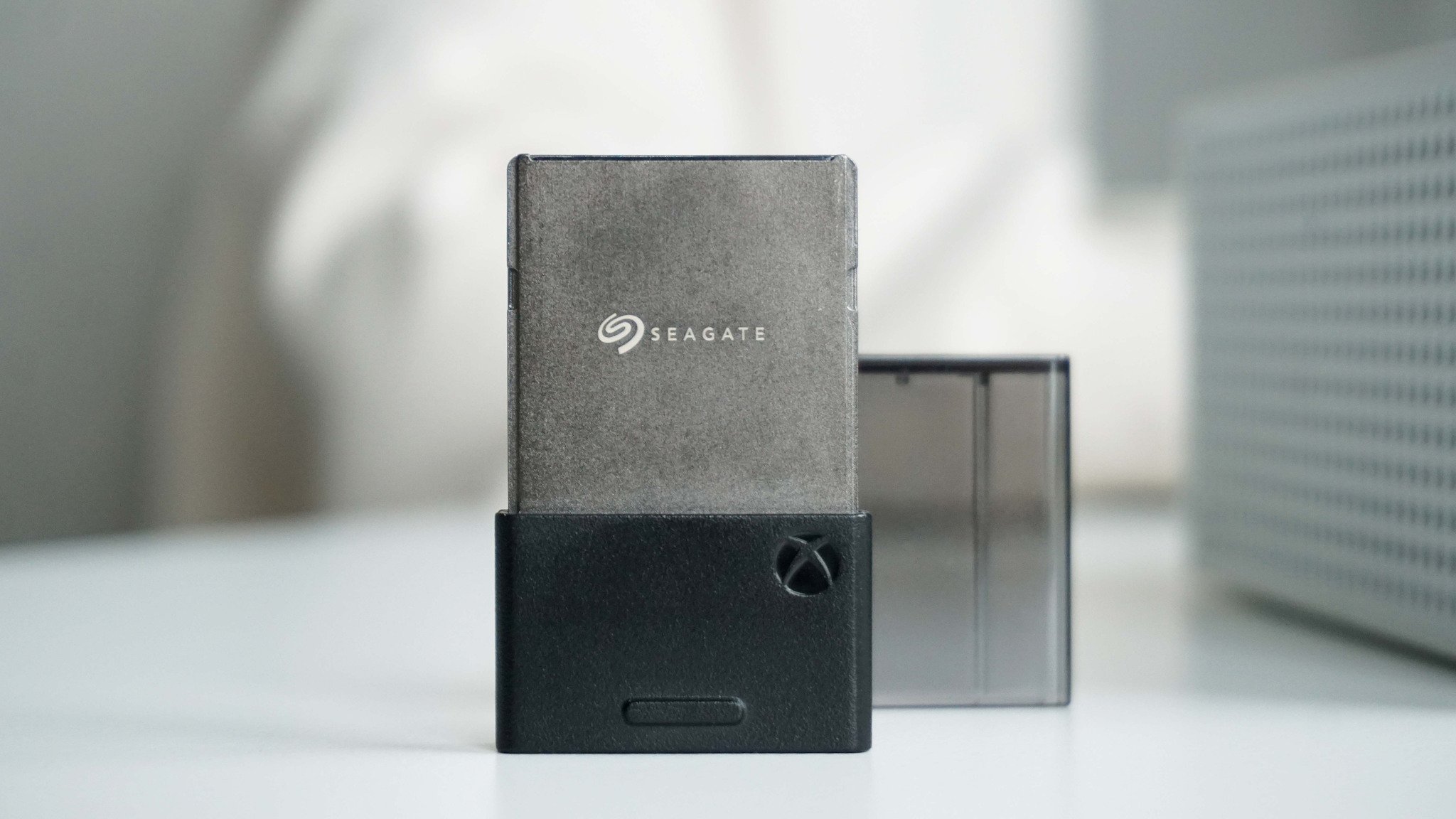
Well, it's not like Microsoft can go about changing course now. We're stuck with these CFExpress cards into the foreseeable future, although I wouldn't be surprised to see them disappear when the next generation rolls around. Knowing that Microsoft could drop its proprietary solution makes investing in one today all the more difficult.
Future data transfer protocols are likely to leap far beyond what Compact Flash can offer. USB 4 is now powered by Thunderbolt as part of Intel's royalty-free pledge to attempt to standardize the 40 GB/s transfer speed and power-delivery interfacing. It potentially opens up opportunities for cheaper external storage solutions that behave as though they were internal, although we'll have to wait and see how market conditions could fluctuate. Console development is all about finding the best value possible, for the lowest price points possible. The bet on Compact Flash didn't pan out this time, but PC component markets are extremely volatile, and heavily exposed to fluctuations.
In any case, it seems unlikely that the cost of the Seagate Xbox Series X|S expansion cards will come down any time soon. And from what I understand, Seagate still has exclusivity with regards to manufacturing the cards at least for now. So, don't expect competition to drive down prices either.
If you're hunting for expanded storage for your Xbox, it may be more cost-effective to pick up a USB external storage device for Xbox instead and transfer games to and from your console as needed.
Kudos to PlayStation. Sony definitely beat Xbox on this one.

Jez Corden is the Executive Editor at Windows Central, focusing primarily on all things Xbox and gaming. Jez is known for breaking exclusive news and analysis as relates to the Microsoft ecosystem while being powered by tea. Follow on Twitter (X) and Threads, and listen to his XB2 Podcast, all about, you guessed it, Xbox!
